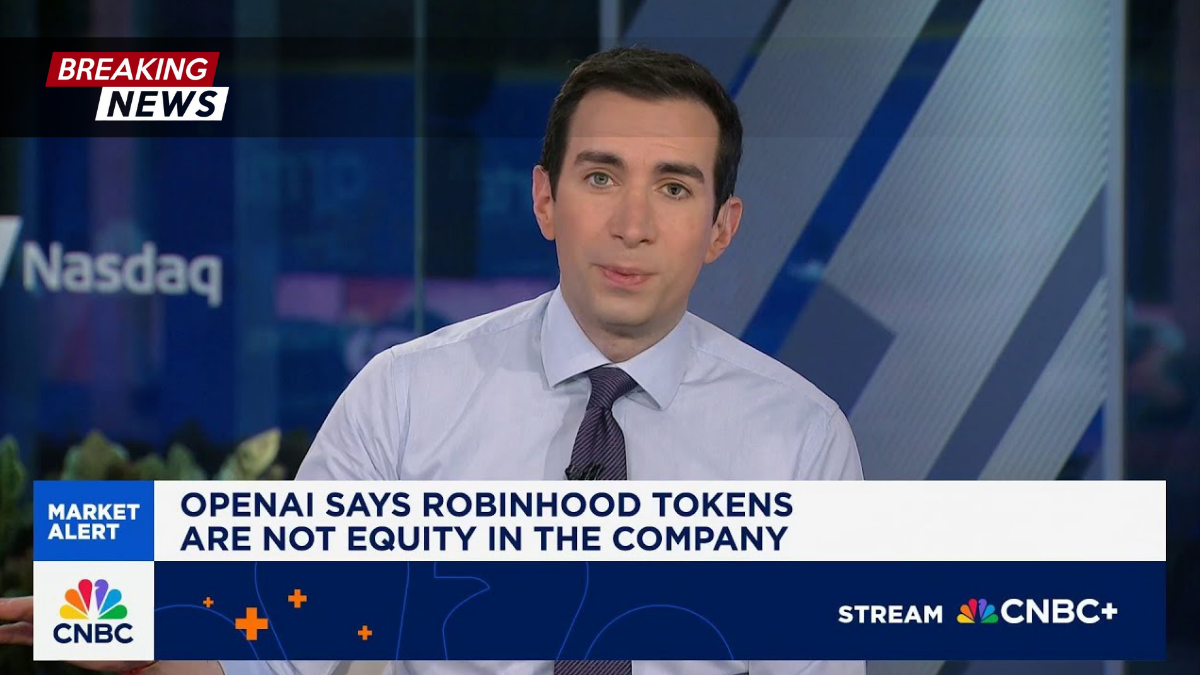The financial sector is undergoing a significant transformation, thanks to innovations like tokenized assets and blockchain technology. While such developments promise greater accessibility and liquidity, they also raise pressing regulatory and ethical concerns. Robinhood, a financial services platform, recently stirred the pot by offering tokenized shares of OpenAI and other private companies without their approval, igniting controversy and sparking debates about the future of investment in tokenized assets.

What Are Tokenized Shares?
Tokenized shares are digital assets created on a blockchain to represent ownership in a company’s equity or provide financial exposure to a company’s stock price. Unlike conventional stocks, tokenized shares exist as codes on a blockchain and can be traded or held like cryptocurrencies. They promise easier and broader access to investment opportunities, even for assets traditionally reserved for accredited investors.
However, as seen in Robinhood’s recent announcement, the line between innovation and overreach can blur when tokenization occurs in unauthorized ways.
The Controversy Around Robinhood and OpenAI Tokens
What Happened?
During an event in Cannes, Robinhood revealed its plan to offer tokenized shares of high-profile private companies, including OpenAI and SpaceX, as part of its European expansion. These were described as “stock tokens” designed to track the financial performance of private entities. They weren’t traditional equities, as token holders wouldn’t enjoy rights like voting or dividends.
The backlash from OpenAI was swift and public. The company stated on social media, “These ‘OpenAI tokens’ are not OpenAI equity. We were not involved and do not endorse it. Please be careful.” OpenAI asserted that any transfer of its equity would require explicit approval, which Robinhood did not obtain.
Robinhood clarified its approach, stating that the tokens provide indirect exposure to such firms through a complex mechanism using Special Purpose Vehicles (SPVs). Critics argue, however, that this structure misleads potential investors into thinking they own actual equity shares.
The Risks of Unauthorized Tokenization
While tokenized assets present clear opportunities, Robinhood’s handling of private company tokenization reveals serious risks and challenges:
1. Investor Confusion
Investors may mistake tokenized shares for direct ownership, overlooking the limited privileges and protections they carry. Misunderstanding these differences could lead to financial losses and erode trust in tokenization.
2. Regulatory Gaps
Tokenized shares test the boundaries of existing securities laws. Markets like the EU, where crypto regulations are still evolving, become testing grounds for financial products like these. However, this ambiguity increases the risks of misuse and potential legal violations.
3. Corporate Pushback
Unauthorized tokenization, as seen with OpenAI, can strain relationships between fintech firms and private companies. Firms like OpenAI rely on controlled equity to maintain valuations and strategic operations. Using their name without consent undermines their rights and creates reputational risks.
4. Market Integrity
If unchecked, “shadow stock markets” may emerge, where tokenized financial assets exist outside regulated traditional markets. This could destabilize valuations for legitimate equity, dilute corporate control, and hurt both investors and companies.
Benefits of Tokenized Shares (When Done Right)
Despite the controversies, well-regulated and consensual tokenized shares have the potential to revolutionize finance:
- Democratization of Investment: Tokenized shares allow smaller investors to enter markets previously reserved for the wealthy.
- Enhanced Liquidity: Selling fractions of a share on blockchain platforms fosters greater tradeability.
- Global Reach: Blockchain ensures accessibility to investors worldwide, bypassing geographical trading barriers.
- Cost Efficiency: Tokenization offers a cheaper alternative to traditional IPOs and stock exchanges.
The goal for fintech innovation is to harness these benefits while addressing the risks evident in Robinhood’s action.
Moving Forward with Tokenization
Robinhood’s experiment raises urgent questions that the fintech industry must address to preserve ethical and financial integrity while fostering innovation:
1. Regulations and Oversight
Clear regulatory guidelines are needed to define when and how companies can tokenize shares, ensuring they comply with both securities laws and intellectual property rights.
2. Transparency with Investors
Platforms offering tokenized assets must distinguish their products from traditional equities. Clear explanations of investor rights and limitations will help prevent confusion.
3. Collaboration with Private Firms
Mutual agreements with private firms ensure trust and compliance when offering tokenized shares. Companies should retain the right to approve or deny inclusion in such offerings.
4. Advancing Investor Education
To help individuals make informed financial decisions, fintech platforms must prioritize educational initiatives. Tools explaining risks, benefits, and mechanisms can empower users to invest wisely.
FAQs
Q1: What are tokenized shares?
A. Tokenized shares are digital assets that represent ownership in a company’s equity, created and traded using blockchain technology. They allow for fractional ownership and easier trading but are subject to regulatory scrutiny.
Q2: Why is Robinhood facing backlash over tokenized OpenAI shares?
A. Robinhood has faced criticism for allegedly offering tokenized shares of OpenAI without proper authorization. This raised concerns about legality, investor protection, and ethical conduct surrounding the offering.
Q3: What are the risks associated with tokenized private equity?
A. Risks include regulatory non-compliance, lack of transparency, vulnerability to fraud, and limited investor protections compared to traditional equity offerings.
Q4: Are tokenized shares regulated?
A. While regulations vary across regions, most financial authorities are still defining frameworks for tokenized assets. Companies must adhere to securities laws applicable in their jurisdiction.
Q5: What are the potential benefits of tokenized shares?
A. Tokenization can enhance liquidity, broaden access to investments, and enable fractional ownership of high-value private assets, making them more accessible to investors.
Final Thoughts
Robinhood’s foray into unauthorized tokenization highlights both the promise and perils of emerging financial tools. The controversial OpenAI tokens remind us that innovation in finance must be balanced with respect for corporate rights, investor transparency, and regulatory compliance.
Tokenized shares have the potential to transform investment, offering opportunities for democratized finance. However, they must be approached with caution and a strong foundation of ethical governance. For private companies assessing their potential involvement in digital finance, now is the time to engage in conversations about how innovation can enhance not undermine their operations.
Click HERE For More
